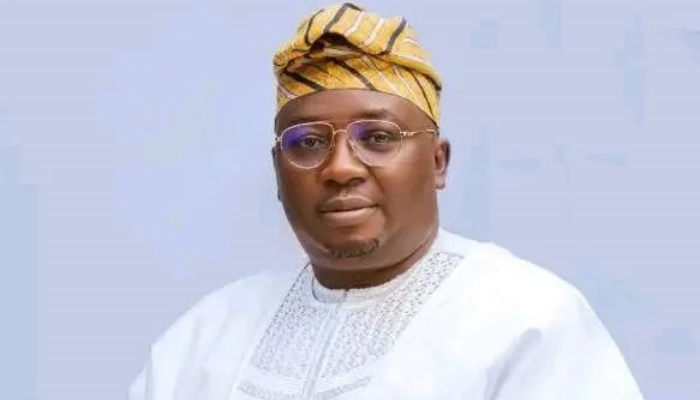The federal government, through the ministry of power have disclosed plans to release $800m for construction of substations and distribution networks in seven states in the country.
Adebayo Adelabu, the minister of Power stated this on Friday, while attending the China-Africa Cooperation Summit and a facility tour of TBEA Southern Power Transmission and Distribution Industry in Beijing, China.
Read also: FG to boost power sector investment for economic development
The minister in a statement issued by Bolaji Tunji, his Special Adviser on Media and Strategic Communication, said that the fund will ensure the construction of substations for Lot 2, substations and distribution lines for Lot 3 at a cost of $400m each. Lot 2 covers Benin, Port Harcourt, Enugu Distribution companies (DISCOs) franchise areas while Lot 3 covers Abuja, Kaduna, Jos and Kano DISCOs franchise areas
He said, “This is as the Federal Government concludes plan to release $800m for the construction of substations and distribution lines under the Presidential Power Initiative (PPI). The fund will ensure the construction of substations for Lot 2, substations and distribution lines for Lot 3 at a cost of $400m each. Lot 2 covers Benin, Port Harcourt, Enugu Distribution companies (DISCOs) franchise areas while Lot 3 covers Abuja, Kaduna, Jos and Kano DISCOs franchise areas.”
The minister who noted the rejection of Power by the Distribution Companies (DISCOs) in the country, said that power generation peaked at 5,170 megawatts recently. “Unfortunately, it had to be ramped down by 1,400 megawatts due to inability of the DISCOs to pick the supply. This is really regrettable considering that government is on course to increase generation to 6,000 megawatts by the end of the year,” he said.
Read also: Minister blames lack of political will, under-investment for power sector woes
Speaking further, the minister decried fragility of the transmission and distribution infrastructure which have become old and dilapidated, adding that the problems in the power sector has impacted the overall industrial growth.
“This has led to historical epileptic supply of Power to households, industry and businesses, more than 59 percent of industries in the Nigeria are off the grid. They did not see the national grid as reliable and dependable. So a lot of them now operate their own captive, self-generated power.
“The administration of President Bola Ahmed Tinubu is determined to transform the power sector, a lot of activities have started that is gradually bringing back confidence in the sector and among the power sector consumers especially the industries.
“When this administration came in last year, we met around 4 gigawatts (4,000 megawatts) of power but within a year, we were able to generate a milestone of 5,170 megawatts and about 1000 megawatts of power within the first year. It may look small, but compared to the history of the country, this is commendable.
“Our plan is by the end of the year, we aim to achieve 6,000 megawatts of power through a combination of hydro electric power plants and our gas- fired power plant. We are also targeting 30 gigawatts of Power to be generated, transmitted and distributed by year 2030 out of which 30 percent would be renewable energy,” he said.
Read also: Minister blames lack of political will, under-investment for power sector woes
Speaking on the renewable energy solutions, the minister said that the country is focused a combination of hydro electric power from small dams, solar energy sources and wind farms from onshore and offshore winds.
He explained that the national grid in its present state can not support the vision for the power sector. “If we look at the strength, the capacity and the age of our existing network on the National grid, it cannot really support our vision for the power sector hence the need for the construction of the Western and Eastern super grid. Though we have been on this since my resumption, I can also tell you that the President is in full support of this because this will improve our transmission network, stabilise the grid and also expand the capacity and the flexibility of the National grid.”
He said 90 percent of the approval required is in place and would be concluded soon.
In his remarks, Huang Hanjie, the President of TBEA, assured of the organisation’s continued support for the Nigeria’s government vision for the power sector. He said TBEA operates across 100 countries in the world and would be willing to share its experience in the provision of energy.
He noted that the TBEA is presently working with the Omotosho, power plant, Ondo State owned by the Niger Delta Power Holding (NDPHC).
Hanjie also commended the Minister for the improvement in the power sector as evidenced in improved generation and transmission since his assumption of office. While also acknowledging the short term improvement to 6 gigawatts by December 2024 and 30 gigawatts by 2030, he said TBEA would be willing to work with the Nigerian government to achieve the vision and contribute to the ongoing power sector revolution in the country.
On the proposed Super grid by the Nigerian government, he indicated TBEA’s interest in participating by contributing its expertise in the project to guarantee its success.
